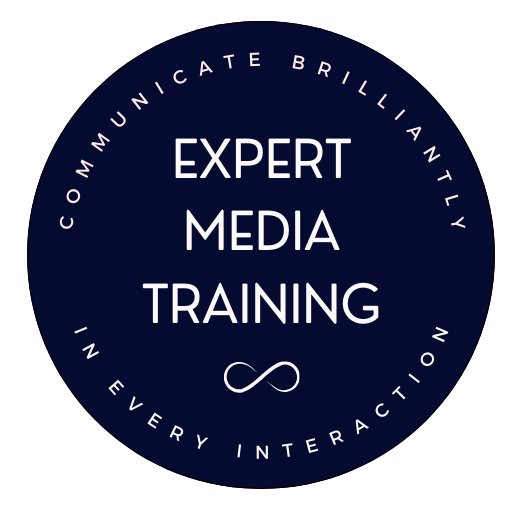
Sharing Doubts Can Tank Others’ Confidence
Before Sharing Doubts About Others, Consider the Effects
Words carry immense power—the power to inspire, support, or uplift, but also the power to discourage, demotivate, and undermine. When it comes to sharing doubts about someone else’s plans or ideas, it’s crucial to pause and consider the potential effects of what we say. Even well-intentioned words can have unintended consequences, influencing not just the decisions of others but their confidence and emotional well-being as well.
Why People Share Their Doubts
People often share their doubts and fears about others’ plans for a variety of reasons, many of which stem from their own emotions, experiences, or intentions. Sometimes, these doubts come from a place of care and protection. They may want to shield someone from potential failure or harm, especially if they perceive the plan as risky or uncertain. For example, a parent might discourage a child’s unconventional career path, fearing it might not provide financial stability.
In other cases, doubts are shaped by the individual’s own insecurities or past experiences. People often project their fears onto others, assuming the same challenges or failures they faced will apply. Similarly, a lack of understanding about the plan or its context can lead to skepticism. Without fully grasping the vision, some may label it as unrealistic or impractical, inadvertently discouraging the person pursuing it.
At times, doubts are expressed with good intentions, such as offering constructive criticism or encouraging someone to think critically about potential risks. However, even when well-meaning, this feedback can undermine confidence if not delivered thoughtfully. Other motivations may include a desire to influence or control the decision-making process, fear of change, or even envy. In some cases, people simply don’t realize how their words can negatively impact someone’s confidence or resolve.
By understanding the underlying reasons behind expressed doubts, we can approach conversations with greater empathy and awareness. Thoughtful communication that considers the potential effects of our words can help ensure that our input uplifts rather than diminishes others.
The Effects of Doubts on Confidence and Performance
Research underscores the significant impact that expressed doubts can have on an individual’s confidence and subsequent performance. Studies reveal that negative feedback—even when constructive—can erode self-efficacy, the belief in one’s ability to succeed.
For example, Jing Zhou and Jennifer M. George (2001), in their study published in the Journal of Occupational and Organizational Psychology, highlight how negative feedback can increase sadness and emotional distress, which in turn diminishes motivation and performance on future tasks. Similarly, Aaron Wichman, Pablo Briñol, Richard Petty, Derek Rucker, and Zakary Tormala (2010), in their research “Doubting One’s Doubt: A Formula for Confidence” published in the Journal of Experimental Social Psychology, emphasize that exposure to doubt can significantly shape confidence levels, either bolstering or eroding them depending on context and follow-up interactions.
More recently, Eun Jung Kim and Kyeong Ryong Lee (2019), in their study published in BMC Medical Education, illustrated how negative feedback can reduce self-efficacy and increase hesitation, delaying action and hindering progress. Their findings, drawn from research conducted in South Korea, underscore the nuanced relationship between doubt and decision-making.
Another relevant study by Schmidt et al. (2020), published in PLOS ONE, explored the long-term effects of doubt on emotional well-being. Conducted at the University of Würzburg in Germany, this research revealed that chronic exposure to skepticism or negative feedback often leads to heightened anxiety and diminished confidence, impacting individuals’ ability to pursue and achieve their goals.
Why Refraining From Doubts Can Empower Others
Choosing to refrain from sharing doubts—or reframing them constructively—can have a profoundly positive impact. When we withhold unnecessary skepticism, we create space for others to build their confidence and take ownership of their decisions. Empowering someone with words of encouragement rather than doubt fosters resilience, self-trust, and motivation.
For instance, instead of pointing out potential pitfalls, consider highlighting the individual’s strengths and reminding them of past successes. This approach not only bolsters their confidence but also encourages a growth mindset, where challenges are viewed as opportunities rather than obstacles. Encouragement can inspire innovation and bold action, traits essential for achieving ambitious goals.
Balancing Constructive Feedback With Empathy
Of course, there are times when feedback is necessary and even critical to success. The key lies in how that feedback is delivered. Constructive feedback should be specific, actionable, and framed within a context of support. For example, instead of saying, “I don’t think this will work,” try, “Have you considered these potential challenges? Here are some ways you might address them.” This approach respects the individual’s agency while offering valuable insights.
Empathy is another crucial element. Before sharing doubts, take a moment to understand the person’s perspective and the effort they’ve invested in their plans. Ask yourself whether your feedback is truly necessary or if it’s driven by your own fears or biases. By centering the conversation on their needs and goals, you can ensure your words are helpful rather than harmful.
A Thoughtful Approach to Communication
Ultimately, the way we communicate about others’ plans reflects our values and priorities. When we choose to lead with encouragement and thoughtful feedback, we contribute to an environment where people feel supported to take risks and pursue their goals. Constructive communication isn’t about avoiding challenges but addressing them in a way that builds confidence and fosters growth.
Before sharing doubts, consider the potential effects. Reflect on whether your words align with the intention to support and uplift. With thoughtful communication, we can help others move forward with clarity and strength.
To download our free Media Interview Guide and other tools, click here.
To check out our online courses, click here.
For a complimentary consultation to discuss private training for yourself or your team, click here.

This post was written by Lisa Elia, a media trainer, presentation trainer, pitch coach, communication expert, and speaker. She trains clients around the world for media interviews, speeches, internal and external presentations, panels, investor presentations, and promotional videos, and provides executive and team communication coaching.
With more than 25 years of experience, Lisa has prepared clients for interviews with TODAY, GMA, The Wall Street Journal, CNN, ESPN, and hundreds of other outlets. Lisa has shared her expertise with national media outlets that include Inc., Entertainment Tonight, E!, and many others. Clients include entrepreneurs, Fortune 500 companies, and everything in between as well as athletes, celebrities, and other public figures.




